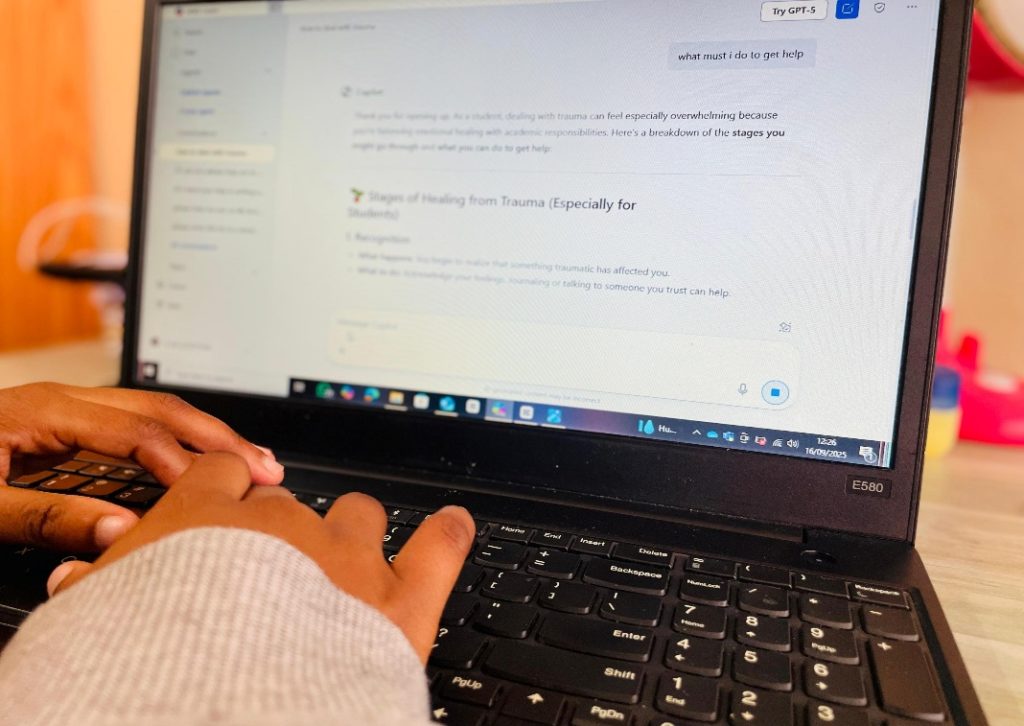By Andiswa Zondi
While the ongoing debating whether Artificial Intelligence (AI) is here to replace people or to assist continues, the tool continues to cause disruptions in various industries. Reports show that increasing numbers of people now prefer and rely on AI for mental health support.
The growing use of AI Chatbots is creating a new unregulated layer of care and continues to raise questions about patient outcomes and the evolving role of therapists.
In many conversations, you often hear people saying when loneliness strikes or when they feel overwhelmed, they tend to vent to an artificial intelligence chatbot, with the belief that AI is a somewhat safer space , where judgment doesn’t exist.
A survey conducted by Koko (2025), a mental health platform, found that people who struggle with mental health issues were more likely to disclose sensitive issues like suicidal thoughts and severe anxiety to an AI bot rather than a human volunteer, citing fear of being judged by another person. There’s also a notion that booking a session with a therapist is expensive whilst AI chatbots offer a free low-cost alternative.
Daniel Ngobeni, who is amongst the people who uses AI to vent, said that while it’s easy to book a session with a therapist, he found traveling costs and time to actually go and physically meet with a therapist to be costly and time consuming.
“I can just open my phone and just dump all my frustrations into the chat and receive a reply almost immediately. I have told AI things I have never told anyone else. There is safety in knowing it is not a person who might think less of me but after a while you hit a ceiling,” Ngobeni said.
Lungani Bhengu shared Ngobeni’s sentiments, saying that he too has resorted to using AI vent, it’s a space where no one can judge him.
“Sometimes I just need to offload my thoughts without feeling judged, and the AI chat bot is always there, no matter the time. It helps me sort through my feelings and even suggests ways to cope, which can be comforting. But at the same time, I know it’s different from talking to a real therapist. It doesn’t truly understand me, and there are moments when its responses feel a bit robotic,” he concluded.
He said for a quick relief, AI is useful, but for a quick solution, he doesn’t think it can replace a professional therapist.
Clinical psychologist, Dr Mgabadeli, lamented that the lack of human oversight can pose a danger to one’s mental health.
“AI does not understand, it predicts. This can lead to generic or harmful advice. Know the boundaries when it comes to artificial intelligence, use it for momentary support and skills development purposes, not as a therapist. It cannot sit with you or celebrate your breakthroughs,” he cautioned.


